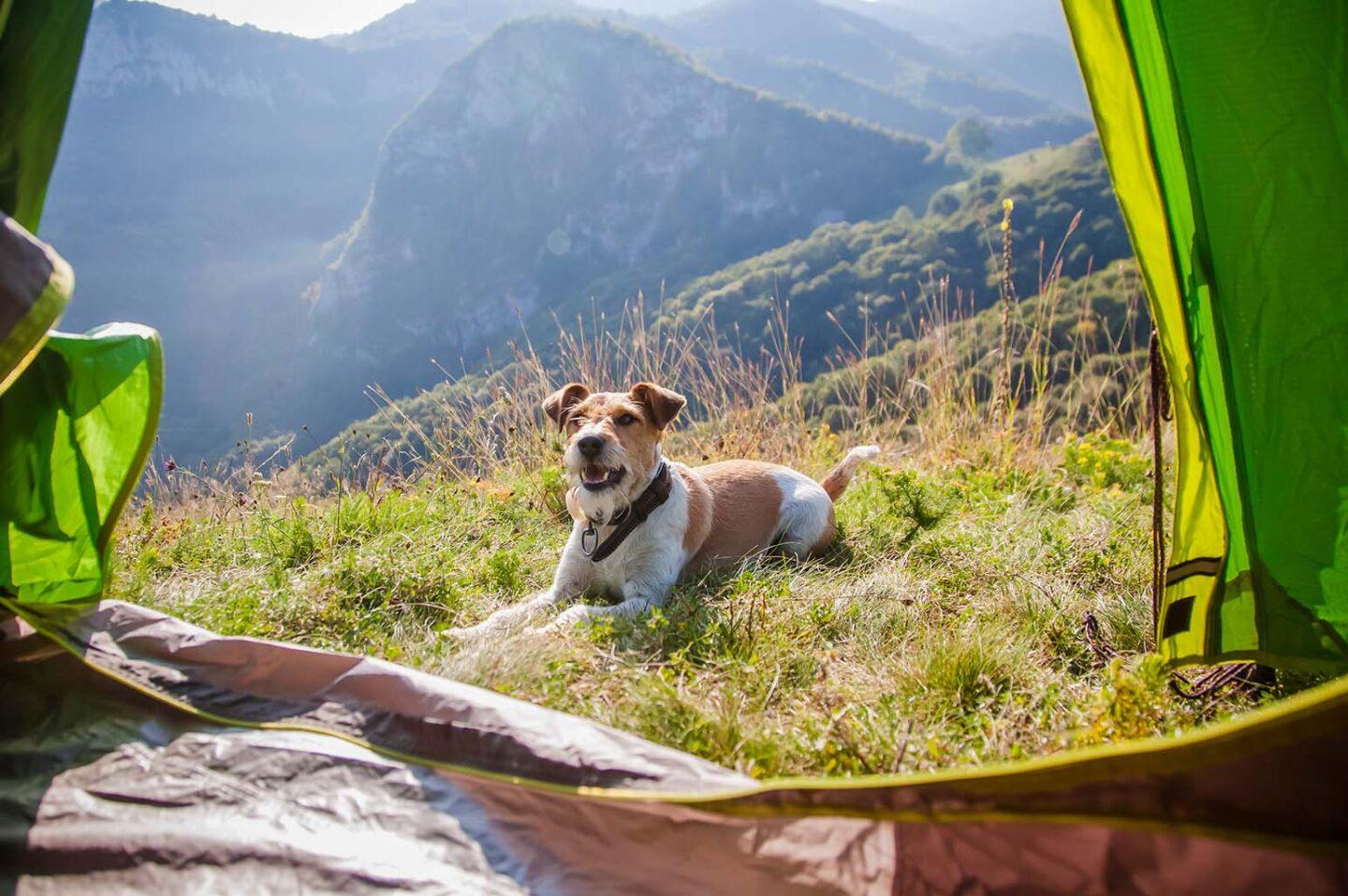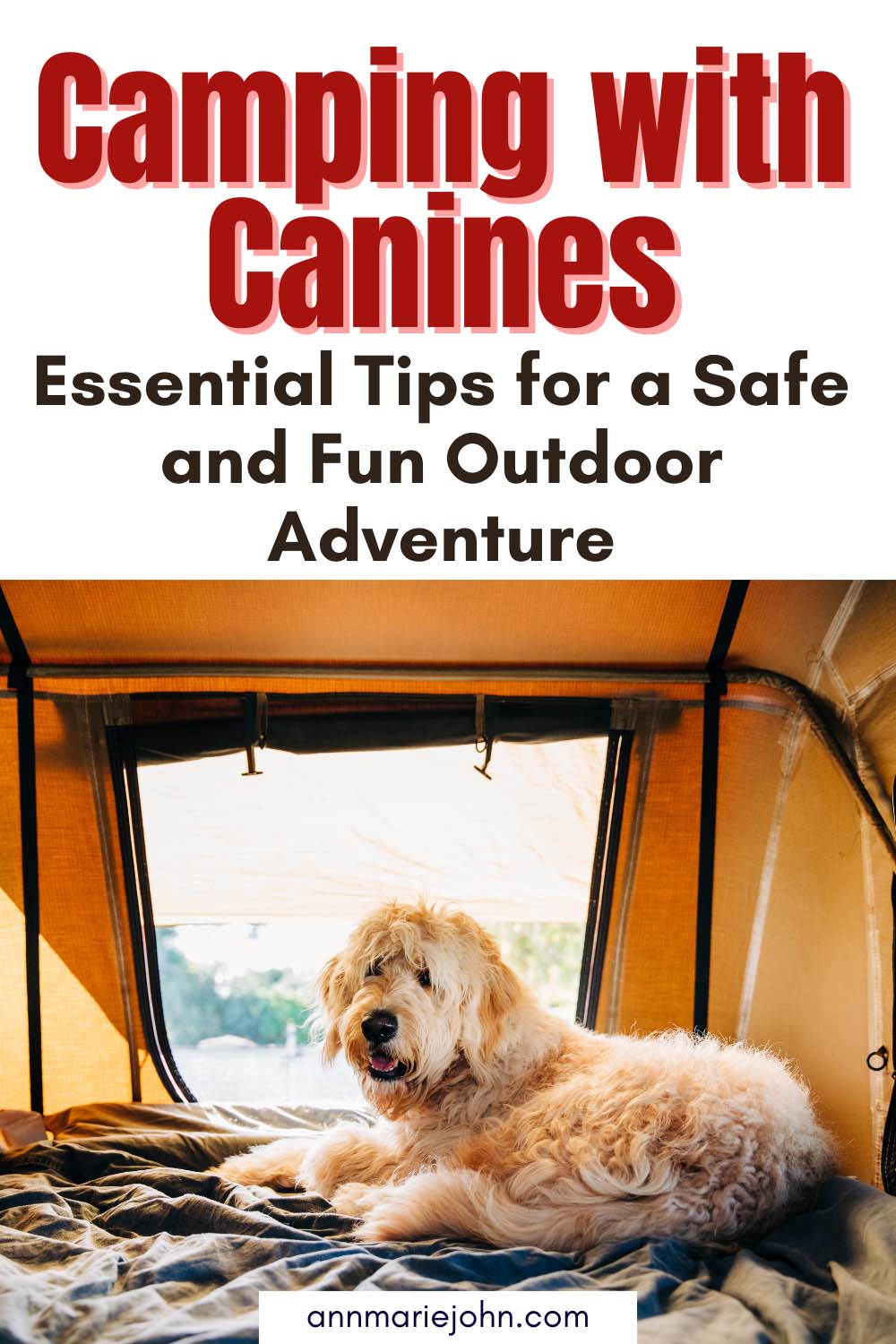Planning a camping trip with your dog? Learn the important factors to consider and ensure a safe and fun adventure.

The call of the great outdoors is irresistible, especially when the weather is perfect and nature beckons. Imagine sharing this adventure with your best furry friend. Camping with your dog can be a wonderfully enriching experience, strengthening your bond and giving you both a delightful escape from the everyday routine. Let’s explore some essential tips to ensure your camping trip with your canine companion is both safe and enjoyable.

Preparation: The Foundation of a Great Trip
Before you start packing, it’s crucial to do a bit of homework. First and foremost, verify if the campsite you’re planning to visit is dog-friendly. Some campsites have restrictions on dog breeds or the number of pets allowed, so double-checking can save you from potential disappointment.
A visit to the vet should be next on your checklist. Ensure your dog’s vaccinations are up-to-date and discuss any additional precautions, such as tick and flea prevention. It’s also a good idea to carry a copy of your dog’s medical records, just in case of an emergency.
Packing Essentials for Your Dog
Getting ready for a camping trip with your dog is quite like preparing for a little one. Here’s a handy list to make sure you’ve got everything covered:
- Pack enough dog food to last the entire trip, plus a bit extra just in case. Don’t forget to bring ample water, as clean water sources might not be available at all campsites.
- Collapsible Bowls: These are great for saving space and making mealtime convenient and easy.
- Even if your dog is well-behaved off-leash, most campsites require dogs to be leashed. A harness offers better control and is usually more comfortable for your pup.
- Having a familiar place to sleep can help your dog feel more at ease. A waterproof blanket can also keep your pet warm and dry by protecting them from the damp ground.
- Include essentials like bandages, antiseptic wipes, tweezers for tick removal, and any medications your dog might need.
- Keeping your dog entertained with their favorite toys can help prevent boredom and unwanted behavior.
- Always clean up after your dog to ensure the campsite remains pleasant for everyone.
Choosing the Right Dog Breeds for Camping
While most dog breeds can enjoy a camping trip, some breeds are particularly well-suited for the adventure. Breeds like Labrador Retrievers, Border Collies, and Australian Shepherds are known for their energy and love of the outdoors. However, every dog is unique, so consider your dog’s personality and fitness level. A less active breed, like a Bulldog or Basset Hound, might need a more relaxed pace and frequent rest breaks.
Setting Up Camp
When you arrive at your campsite, let your dog explore their new surroundings while on a leash. This helps them get used to the environment and reduces anxiety. Choose a shaded spot to set up your tent, providing a cool place for your dog to relax.
Make sure to secure your tent when you’re inside to prevent any nighttime adventures. Dogs can be curious and may try to wander off, so keeping them inside the tent with you ensures both warmth and security.
Hiking and Exploring
One of the most enjoyable aspects of camping is hiking the trails with your furry friend. Keep your dog on a leash to prevent them from getting lost or having unexpected encounters with wildlife. A sturdy, retractable leash allows them a bit more freedom while ensuring their safety.
Remember to take frequent breaks and offer your dog water regularly.
Campfire Safety
Dogs can overheat quickly, particularly if they’re not used to strenuous activity. Watch for signs of fatigue or overheating, such as excessive panting or drooling. Make sure to take breaks in the shade as needed to keep your dog comfortable and safe.
While the campfire is a cozy spot for you, it can be a hazard for your dog. Keep a close eye on your pet around the fire and use a long leash to keep them at a safe distance. Hot embers and curious paws do not mix well.
Be mindful of what you’re cooking. Some foods, like chocolate and certain nuts, are toxic to dogs. Ensure any food scraps are disposed of properly to prevent your dog from scavenging.
Nighttime Considerations
As the sun sets and the campfire dies down, it’s time to settle in for the night. Keep your dog close, either inside the tent or in a secure area. The unfamiliar nighttime sounds can be unsettling, and a secure environment will help your dog feel safe.
If you’re camping in a cold area, bring an extra blanket or a doggy sleeping bag to keep your pet warm. A comfortable dog is a happy camper.
Respecting Wildlife
One of the joys of camping is being close to nature, but it also means respecting the local wildlife. Keep your dog under control to prevent them from chasing or harassing animals. This is important for the safety of the wildlife and your dog, as some animals can be dangerous or carry diseases.
Leaving No Trace
A responsible camper always leaves the campsite as they found it, if not better. This means cleaning up all waste, including your dog’s. Bring plenty of waste bags and dispose of them properly. This not only keeps the campsite clean but also ensures it remains a welcoming place for future campers and their dogs.
Stay Aware of Weather Conditions
Weather can change rapidly, especially in mountainous or forested areas. Be prepared for various conditions:
- Heat: Ensure your dog has access to shade and fresh water. Avoid strenuous activities during the hottest parts of the day.
- Cold: Bring appropriate gear for your dog, like a doggy jacket or extra blankets, to keep them warm.
- Rain: Waterproof gear and a dry place to sleep are essential to keeping your dog comfortable during wet weather.
Emergency Preparedness
Accidents can happen, so being prepared is crucial.
- First Aid Kit: In addition to the basics, include dog-specific items like styptic powder, which helps stop bleeding.
- Identification: Ensure your dog wears a collar with ID tags and consider a microchip for added security.
- Emergency Plan: Know the nearest veterinary clinics and emergency services along your route or near your campsite.
Enjoying the Water
If your camping adventure includes lakes, rivers, or the ocean, many dogs will enjoy a good swim. However, safety is key.
- Swimming Ability: Not all dogs are natural swimmers. Ensure your dog is comfortable in the water and supervise them closely.
- Life Vest: For added safety, use a doggy life vest, especially in deep or fast-moving water.
- Water Quality: Ensure the water is clean and safe for swimming. Avoid areas with blue-green algae, which can be toxic to dogs.
Keeping Your Dog Comfortable and Safe
Camping is a new experience for many dogs, so maintaining their comfort and safety is paramount.
- Routine: Try to keep feeding and exercise routines similar to those at home to provide a sense of normalcy.
- Noise: Unfamiliar sounds can startle dogs. Bringing a familiar item, like a favorite toy or blanket, can help soothe them.
- Visibility: Use reflective gear or a light-up collar to keep your dog visible at night.
Socializing and Boundaries
Camping is an opportunity for socializing, but it’s important to manage interactions with other campers and animals.
- Friendly Behavior: Ensure your dog is well-socialized and comfortable around strangers and other dogs.
- Boundaries: Respect other campers’ space. Not everyone is comfortable around dogs, so be considerate of others’ preferences and maintain control over your pet.
Creating Lasting Memories
A camping trip with your dog can be one of the most rewarding experiences, creating memories that last a lifetime.
- Photos: Capture moments of your adventure to look back on. A dedicated pet camera or GoPro harness can provide unique perspectives of your trip.
- Activities: Engage in activities both you and your dog enjoy, such as fetch, swimming, or exploring new trails.
In Conclusion
Camping with your dog requires planning and consideration, but the joy and companionship it brings are well worth the effort. By ensuring your dog’s safety, comfort, and enjoyment, you’ll both come away with an unforgettable experience.
Remember, the key to a successful camping trip with your canine companion is preparation, respect for nature, and a sense of adventure. Happy camping!
